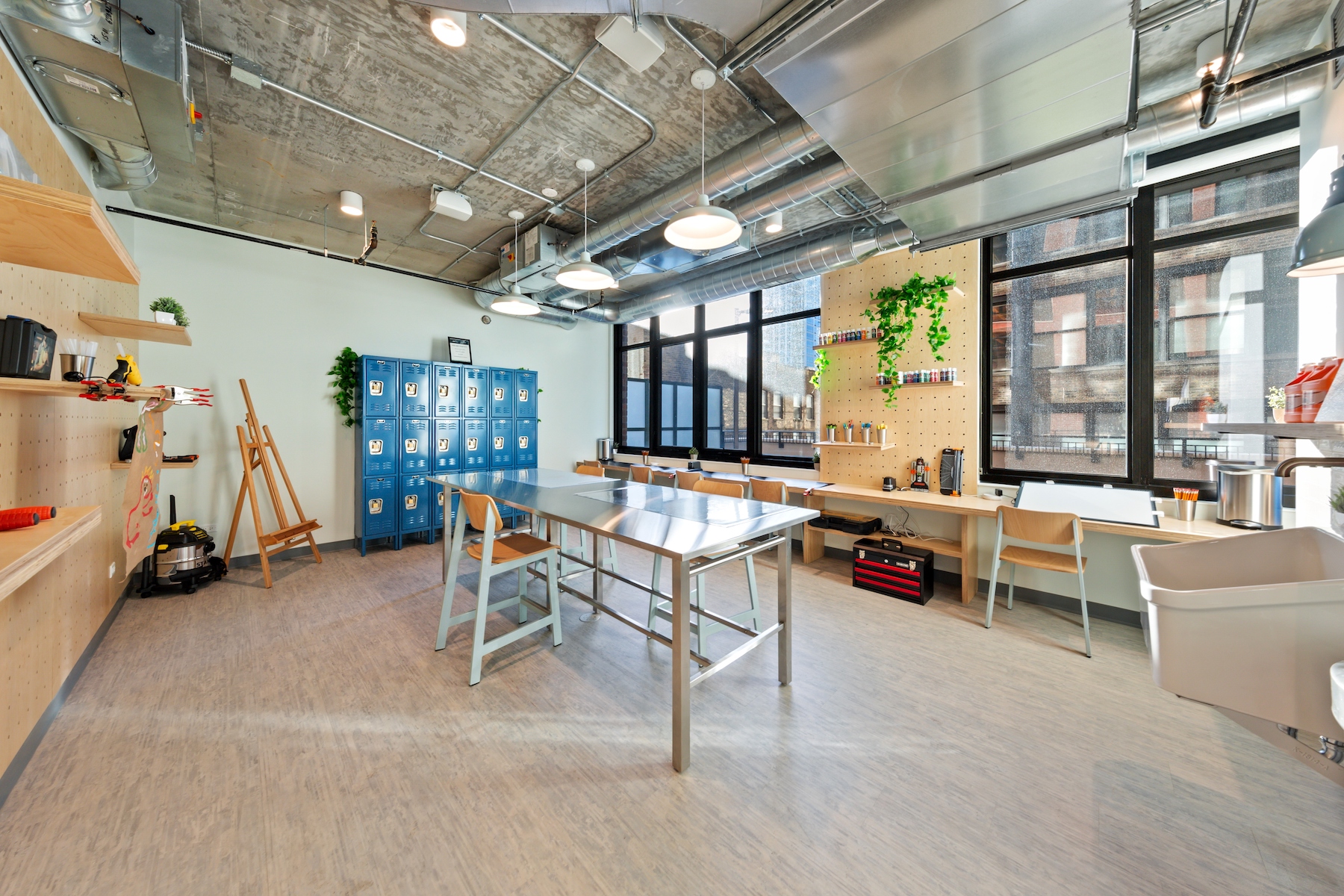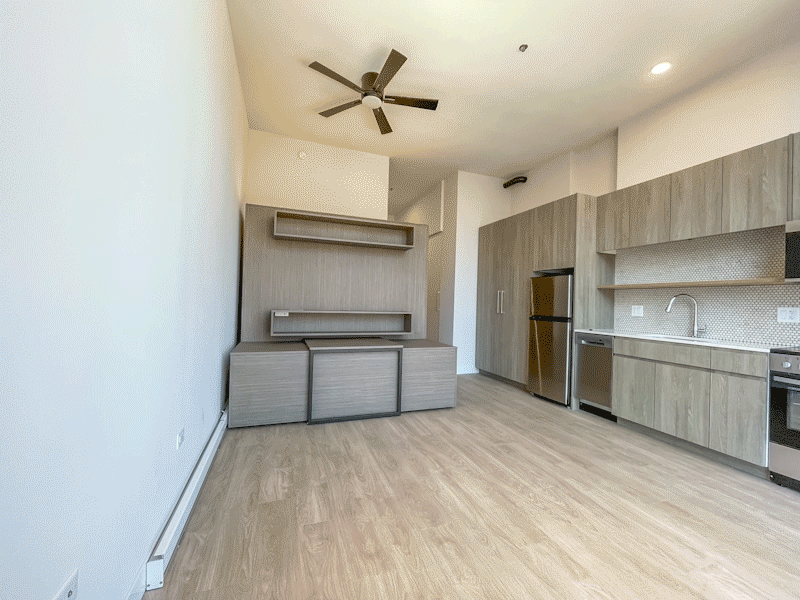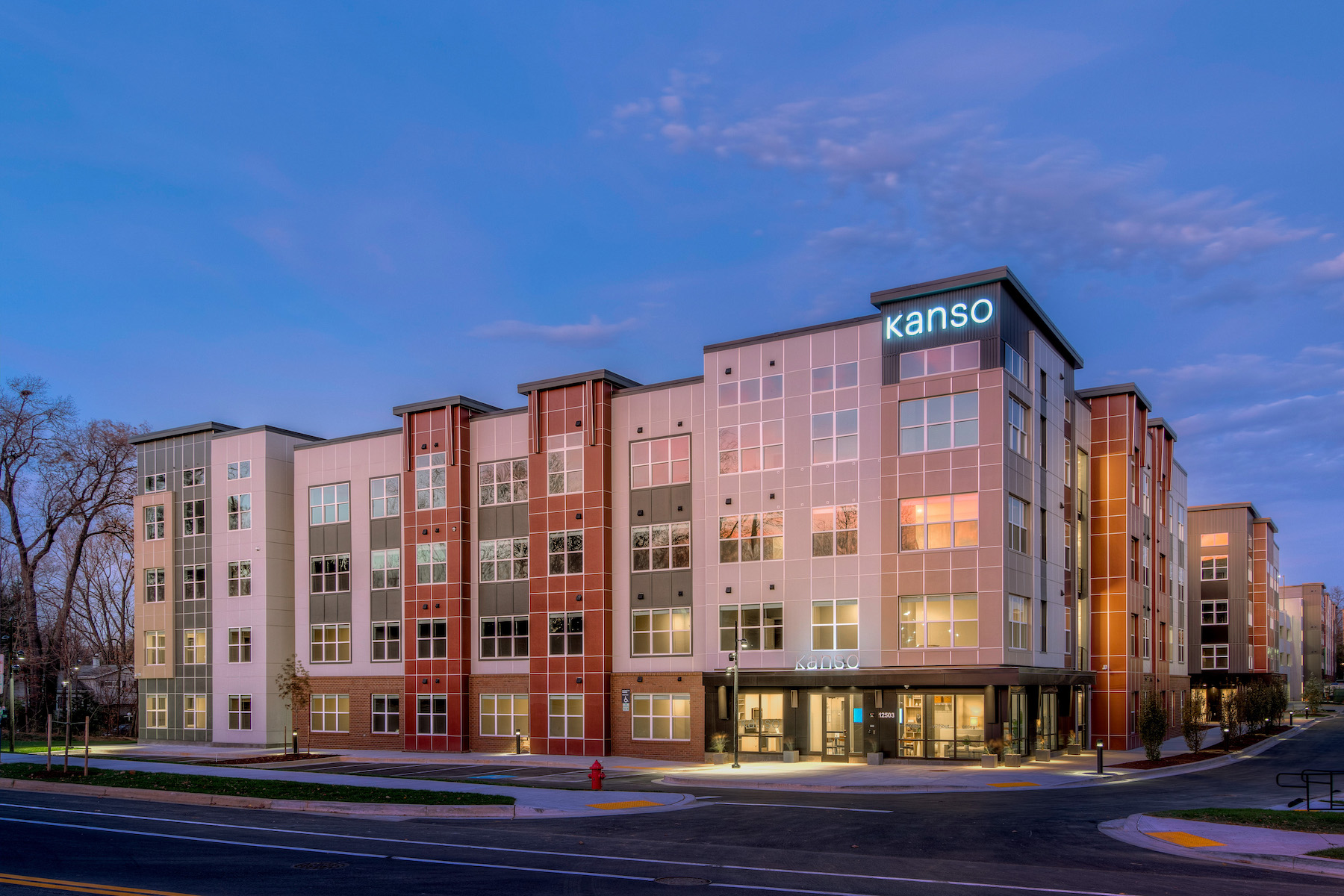Remote work is not only here to stay but is shaping the modern renter’s wants and needs while influencing design decisions and building plans across the industry.
New data from the 2022 National Multifamily Housing Council (NMHC)/Grace Hill Renter Preferences Survey Report, which features insights from more than 221,000 renters living in 4,564 communities across the U.S., shows that a rise in remote work was a driving force among renters who relocated during the pandemic. Of the 60 percent of survey respondents who moved during the past 18 months, 25 percent moved as a result of the shift to remote work.
Like many, renters are teleworking with higher frequency than ever before. Nationally, the share of respondents who are teleworking daily is roughly five times higher than it was two years ago. And many aren’t counting on that changing. Of those who currently telework (with any frequency), 64 percent anticipate working from home about the same amount over the next 12 months and 9 percent anticipate working from home more. In contrast, 27 percent said they anticipate working from home less over the coming year.
Curb-to-couch connectivity in multifamily housing
Renters have long demanded seamless connectivity, from curb to couch and everywhere in between, but this need has become critical as telecom and internet technology have become a lifeline to their livelihoods.
Respondents ranked reliable cell phone service as the No. 1 community amenity, with 86 percent of survey respondents indicating interest. Renters are even more serious about their internet connectivity in their units, with nine out of 10 respondents saying they were interested in or wouldn’t rent their home without it. An environment conducive to work also needs to be quiet and private, leading to strong interest in soundproof walls with 90 percent of renter respondents saying they are interested or won’t rent without this amenity.
As such, some communities are opting to offer high-speed, community-wide Wi-Fi as part of the properties’ amenity package. For example, AvalonBay Communities’ Kanso Twinbrook, in Rockville, Md., partners with WhiteSky to offer seamless, secure and instant high-speed Wi-Fi internet connectivity throughout the entire community. Residents can move in and log on—no equipment or installation appointments required.

Home offices and shared meeting spaces have also become in-demand features. While 19 percent of renter respondents said they would consider using a co-working facility when teleworking, such as WeWork or SPACES, a greater share of respondents (35 percent) indicated interest in using a shared workspace at their communities.
Not only are these amenities sought after, but renters are willing to pay an additional monthly premium for them. Of those interested, the average survey respondent is willing to pay $47.93 more per month for high-speed internet, $42.78 for reliable cell phone service, and $46.21 for soundproof walls. And for a convenient onsite alternative to work from home, interested renters are willing to shell out $36.60 more on average for an on-site rentable co-working space.
Recognizing this, some developers are making significant investments in their co-working amenities by repositioning common areas as co-working space, adding charging and print stations and even introducing more specialized equipment. For example, AMLI 808 in Chicago offers downtown living with a plethora of work-from-home amenities, including an on-site podcast studio and a DIY studio for makers and builders.
Flexibility becomes a key feature in apartment design
With the lines blurred between work and home, renters are increasingly looking for flexibility in their homes to accommodate these shifting needs. Versatility rules as nearly two-thirds of survey respondents said that flexible space in their homes was either important or extremely important. Adaptable floorplans that can adjust to a variety of needs and options for furnished or unfurnished units are among the features these live-work-play from home renters desire.
As an example, AMLI 808 also features Ori studio suites. Choreographing movement into apartment homes, this modular furniture system creates a private bedroom, an open living room, work from home space, storage and more—all at the touch of a button.

However, flex living isn't limited to just physical space. As remote work gives more renters the freedom to move about, they are considering alternatives to the traditional leasing model. For example, 56 percent of those who moved because of a switch to remote work said they would consider joining a rental housing membership program similar to a vacation club. That same group also indicated more interest than their non-mover counterparts in having the ability to list their rental homes on short-term rental sites like Airbnb or VRBO.
The pandemic has certainly changed the way we work; owners, developers and architects who recognize this new paradigm and respond with creative solutions will keep renters satisfied and the industry moving forward.
About the survey: Since its inception in 2013, the NMHC/Grace Hill Renter Preferences Survey Report has been the authoritative data source for apartment owners, managers, developers, industry suppliers, as well as architects, financial institutions and others seeking insights into the minds of renters. This biennial survey of residents at institutional-grade properties provides users with reliable data to make a variety of investment, development and operational decisions. Survey partners featured NMHC 50 companies including Greystar, AMLI Residential, and Windsor Communities.
Related Stories
MFPRO+ News | Jun 3, 2024
Seattle mayor wants to scale back energy code to spur more housing construction
Seattle’s mayor recently proposed that the city scale back a scheduled revamping of its building energy code to help boost housing production. The proposal would halt an update to the city’s multifamily and commercial building energy code that is scheduled to take effect later this year.
Resiliency | Jun 3, 2024
Houston’s buyout program has prevented flood damage but many more homes at risk
Recent flooding in Houston has increased focus on a 30-year-old program to buy out some of the area’s most vulnerable homes. Storms dropped 23 inches of rain on parts of southeast Texas, leading to thousands of homes being flooded in low-lying neighborhoods around Houston.
MFPRO+ New Projects | May 29, 2024
Two San Francisco multifamily high rises install onsite water recycling systems
Two high-rise apartment buildings in San Francisco have installed onsite water recycling systems that will reuse a total of 3.9 million gallons of wastewater annually. The recycled water will be used for toilet flushing, cooling towers, and landscape irrigation to significantly reduce water usage in both buildings.
MFPRO+ News | May 28, 2024
ENERGY STAR NextGen Certification for New Homes and Apartments launched
The U.S. Environmental Protection Agency recently launched ENERGY STAR NextGen Certified Homes and Apartments, a voluntary certification program for new residential buildings. The program will increase national energy and emissions savings by accelerating the building industry’s adoption of advanced, energy-efficient technologies, according to an EPA news release.
MFPRO+ News | May 24, 2024
Austin, Texas, outlaws windowless bedrooms
Austin, Texas will no longer allow developers to build windowless bedrooms. For at least two decades, the city had permitted developers to build thousands of windowless bedrooms.
Mass Timber | May 22, 2024
3 mass timber architecture innovations
As mass timber construction evolves from the first decade of projects, we're finding an increasing variety of mass timber solutions. Here are three primary examples.
Mixed-Use | May 22, 2024
Multifamily properties above ground-floor grocers continue to see positive rental premiums
Optimizing land usage is becoming an even bigger priority for developers. In some city centers, many large grocery stores sprawl across valuable land.
MFPRO+ News | May 21, 2024
Massachusetts governor launches advocacy group to push for more housing
Massachusetts’ Gov. Maura Healey and Lt. Gov. Kim Driscoll have taken the unusual step of setting up a nonprofit to advocate for pro-housing efforts at the local level. One Commonwealth Inc., will work to provide political and financial support for local housing initiatives, a key pillar of the governor’s agenda.
MFPRO+ News | May 21, 2024
Baker Barrios Architects announces new leadership roles for multifamily, healthcare design
Baker Barrios Architects announced two new additions to its leadership: Chris Powers, RA, AIA, NCARB, EDAC, as Associate Principal and Director (Healthcare); and Mark Kluemper, AIA, NCARB, as Associate Principal and Technical Director (Multifamily).
MFPRO+ News | May 20, 2024
Florida condo market roiled by structural safety standards law
A Florida law enacted after the Surfside condo tower collapse is causing turmoil in the condominium market. The law, which requires buildings to meet certain structural safety standards, is forcing condo associations to assess hefty fees to make repairs on older properties. In some cases, the cost per unit runs into six figures.

















